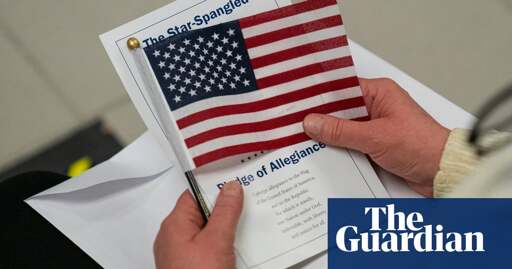The Trump administration has codified its efforts to strip some Americans of their US citizenship in a recently published justice department memo that directs attorneys to prioritize denaturalization for naturalized citizens who commit certain crimes.
The memo, published on 11 June, calls on attorneys in the department to institute civil proceedings to revoke a person’s United States citizenship if an individual either “illegally procured” naturalization or procured naturalization by “concealment of a material fact or by willful misrepresentation”.
At the center of the move are the estimated 25 million US citizens who immigrated to the country after being born abroad, according to data from 2023 – and it lists 10 different priority categories for denaturalization.
According to the memo, those subjected to civil proceedings are not entitled to an attorney like they are in criminal cases. And the government has a lighter burden of proof in civil cases than they do in criminal ones.
Edit: According to the Miami Herald, it depends on where you live:
The Supreme Court’s ruling means the judges’ injunctions blocking Trump’s executive order only affect the jurisdictions where immigrant groups filed their lawsuits — leaving the rest of the country, including Florida, subject to the president’s citizenship order. The turn of events is likely to lead to more federal lawsuits, including a class action case brought by the American Civil Liberties Union in New Hampshire on Friday.



So, what happens to those people’s status regarding their statehood? We can’t force their prior country to re-instate their citizenship.